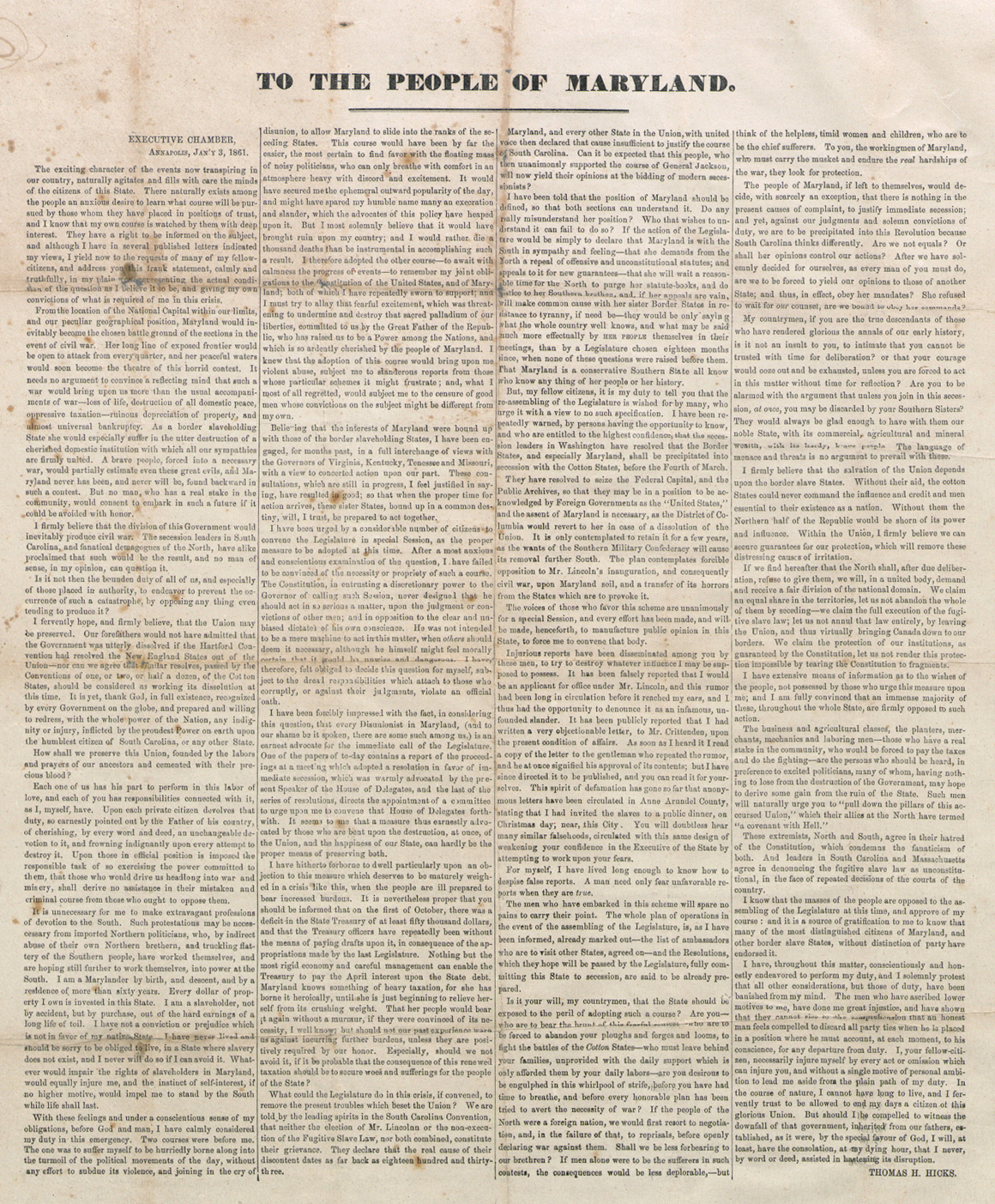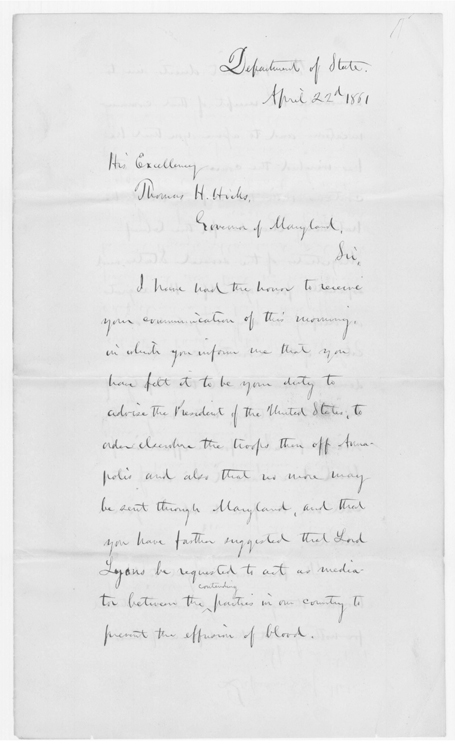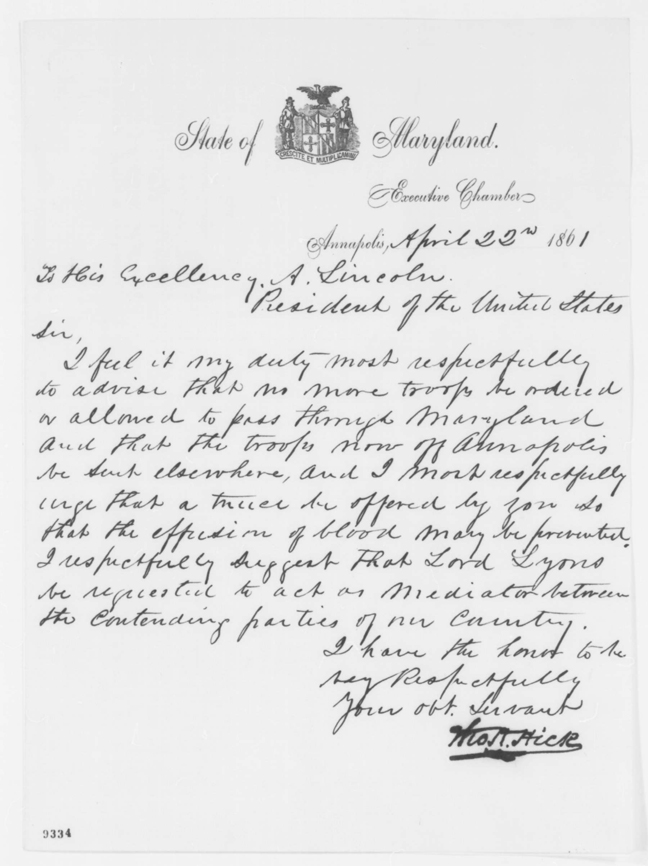Straddling Secession: Thomas Holliday Hicks and the Beginning of the Civil War in Maryland
- Hicks Exhibit Home
- The Gathering Storm
- Baltimore and Annapolis
- Calling the Legislature
- Burning the Bridges
- A Plot Aganist Lincoln?
- The War After Hicks
The Gathering Storm

View Enlarged "To the People of Maryland" Thomas Holliday Hicks, January 3, 1861 MSA SC 295
"The only safety of Maryland lies in preserving a neutral position between our brethren of the North and of the South." -Hicks, message to General Assembly, April 25, 1861
During the 1860 presidential campaign, talk of secession circulated throughout the slave-holding South, including Maryland. Within weeks of Abraham Lincoln's election, several states in the deep South seceded from the Union and formed the Confederate States of America. During the winter of 1860 and spring of 1861, Hicks worked to keep Maryland from seceding and to hold Maryland out of the impending conflict.
Like many in Maryland, Hicks had no love of Lincoln, often derided as merely a "sectional" candidate, who represented only a small portion of the country. However, like others in Maryland, Hicks felt that the state had more in common with the other border states-Virginia, Delaware, Kentucky, Tennessee, and Missouri-than with the states of the deep South or the North.

View Enlarged Letter from Seward to Hicks Seward to Hicks, April 22, 1861 MSA S 1274
During the winter of 1860-1861, state legislatures across the South began to debate whether to secede from the Union. Hicks himself felt pressure to call a special session of the General Assembly in Maryland, which he resisted. "It has been impossible to make the Governor believe that the secession of seven States from the Union was an 'extraordinary occasion,'" worthy of calling a special session, complained the Baltimore Sun. Hicks was certain that if he called the legislature into session, it would pass a resolution withdrawing Maryland from the United States, noting that "every Disunionist in Maryland.is an earnest advocate for the immediate calling of the Legislature." Secession would lead to certain civil war, he argued, and "Maryland would inevitably become the chosen battleground," since it was situated between the warring sides and was close to Washington, D.C.
As tensions rose, a number of people proposed ways to prevent the outbreak of war between the North and South. Some, including Hicks, explored the possibility of forming a league of border states to counter the Union and the Confederacy. Hicks eventually rejected such a plan as being of dubious constitutionality, just as he believed secession was.
Hicks also took a more unusual approach by suggesting, in the letter at left, to President Lincoln that Lord Lyons, the British envoy to Washington, serve "as a mediator between the contending parties of our country." Secretary of State William H. Seward offered this terse reply, shown at right:

View Enlarged "To the People of Maryland" Hicks to Lincoln, April 22, 1861 Abraham Lincoln Papers, Library of Congress
"If eighty years could have obliterated all the other noble sentiments of [the Revolutionary] age in Maryland, the President would be hopeful, nevertheless, that there is one that would forever remain there and everywhere. That sentiment is, that no domestic contention ought in any case to be referred to any foreign arbitrament, least of all to the arbitrament of a European monarchy."
|
This web site is presented for reference purposes under the doctrine of fair use. When this material is used, in whole or in part, proper citation and credit must be attributed to the Maryland State Archives. PLEASE NOTE: The site may contain material from other sources which may be under copyright. Rights assessment, and full originating source citation, is the responsibility of the user. |
© Copyright December 15, 2023 Maryland State Archives
